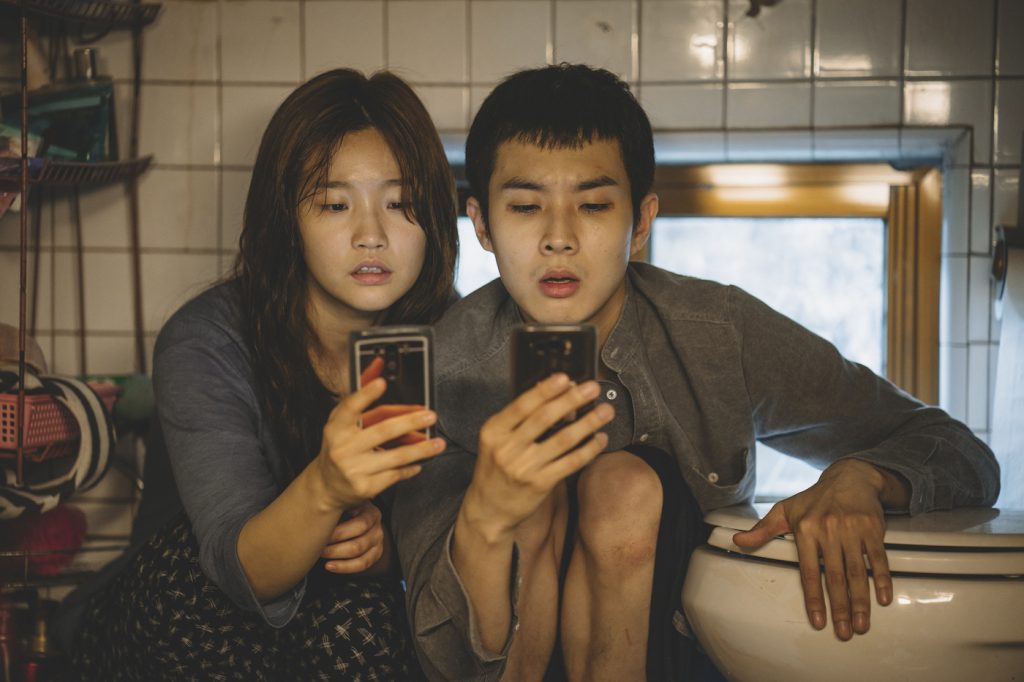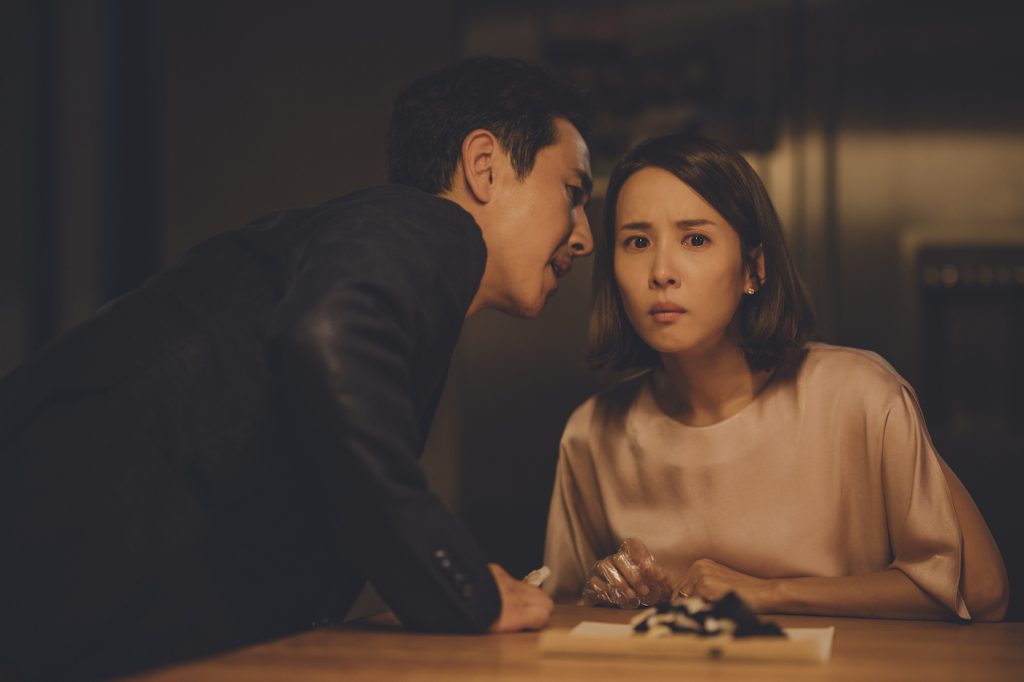Oscar Watch: How Parasite’s Editor Helped Shape Thrilling Shifts in Tone
Palme d’Or winner and Best Picture Oscar contender Parasite shocked audiences this autumn on the strength of writer-director editor of Bong Joon-ho‘s meticulously constructed blend of comedy, melodrama and thriller elements. The story follows the poor but well-educated grifters in the Park family, who insinuate themselves into the lives of the wealthy Kim household by posing as an earnest tutor, housekeeper, and chauffeur. When the Park teenagers and their parents conspire to wrest domestic control from the Kims’ loyal live-in maid, class warfare ensues.
Parasite embeds itself into the moviegoer’s imagination through a multitude of moods. Helping Joon-ho put the pieces in place is editor Jinmo Yang, nominated for an ACE Eddie award. A long-time Joon-ho collaborator, Yang previously worked on the director’s sci-fi thriller Snowpiercer and 2017 animal rights drama Okja before spending three months in the editing suite alongside Joon-ho. Connecting via Skype from his studio in Seoul, Yang broke down key Parasite sequences and explained how an ancient Korean aphorism guided the movie’s deft shifts in tone.
The Parasite plot does a great job of setting up the crazy twists and turns confronted by these two families. Did you discover some of those moments in editing?
The structure itself was really well built from the beginning, going back to the storyboards. What we did in the editing suite was more about finding the best shots and perfecting the rhythm of each sequence.

Can you give an example?
In the belt of faith sequence, we played around with different takes for nearly every shot.
That’s the montage showing how the poor family frames the maid to make it look like she’s got tuberculosis?
Yes, we have this grandiose, classical music builds up to point where the [poor] father Ki-taek lifts the blood-stained tissue from the trash. The beats in certain shots [initially] felt too lagging so director Bong wanted to shorten their length and tighten it. Every shot was built into the original structure, but during the edit, we discovered moments that weren’t intended for the sequence that worked. We were very delicate finding the right take for each sequence.
There’s not an ounce of fat on these montages. They convey information in a very efficient way.
You nailed it. Efficiency. When we introduce Jessica into the rich family, there was actually another scene that didn’t make the final cut. She’s at a hair shop getting a makeover, but then we realized it wasn’t about every single step. We wanted to place the Kim family in the setting of the rich people so we took out that shot and increased the velocity to where we see the poor family merging into the rich neighborhood.
The movie starts out almost like a heist film or con-game comedy, but then there’s this dramatic shift in tone. How did you navigate that transition?
In Korea there’s a phrase “You don’t realize your coat is getting wet from a drizzle,” and that’s the approach we took. Boon and I talked constantly about how to make that shift because we didn’t want the audience to realize they were getting into the third act until they’re in the middle of it. And yet, there are little clues, like when we see this dark entrance near the kitchen. Those kinds of shots are spread sporadically throughout the transition, but they’re not obvious.

When the action picks up, you cut back and forth between parallel storylines. How did you pace those cuts?
Organic is probably the best word to describe our approach to the cutting process. We made sure there was some kind of flow between the two cuts rather than just a meaningless cut cut cut cut approach. For example, after the Kim family runs through the pouring rain from the rich people’s house, we see Jessica sitting on top of the toilet bursting with sewage water. Then we cut to the rich people’s house where the maid’s throwing up in the toilet. We wanted a logical transition between those two different scenes, as if they’re in conversation with one another. Those cuts were not something we originally planned to do, but in the editing process, it made sense.
Is that kind of discovery in the editing room a normal part of the process?
In reality, that doesn’t happen often because Bong is the ultimate planner. In the film, the [poor family’s] father says “No plan is the best plan” but Boon is the exact opposite. He plans every single step of the way and he’s very good at following up on that plan.
The music in Parasite goes from a wild jazz drum solo at one point to very solemn choral music later on in the movie. What’s your role when it comes to music cues?
When I pick the temp music for rough-cut editing, I try to bring in a diversity of styles. When the rich family comes back from camping in rainy weather, we set that to a piece by Vivaldi but the tempo wasn’t up to what Boon and I envisioned, so we sped up the reference music and did the cutting based on that because we felt that faster rhythm gave life to the sequence.

Parasite winds down with a bittersweet coda depicting the aftermath of a family tragedy. How did you shape the mood for that final chapter of the story?
After the climax hits, we wanted the audience to feel like they’ve just gone through a storm and needed some breathing room to process what they’ve just seen so we brought down the tempo again. The background music as the credits roll was originally going to be a rock and roll song but we changed it to “Soju One Glass” performed by Choi Wooshik. The sentiment is, “a shot of whiskey, a shot of tequila.” We made that choice of music in the hopes that the audience, when they leave the theater, will maybe go to a dive bar and grab a beer or a shot of tequila and have a conversation about what it all means.
Featured image: The Kim Family (Woo-sik Choi, Kang-ho Song, Hye-jin Jang, So-dam Park) in Parasite. Courtesy of NEON CJ Entertainment



